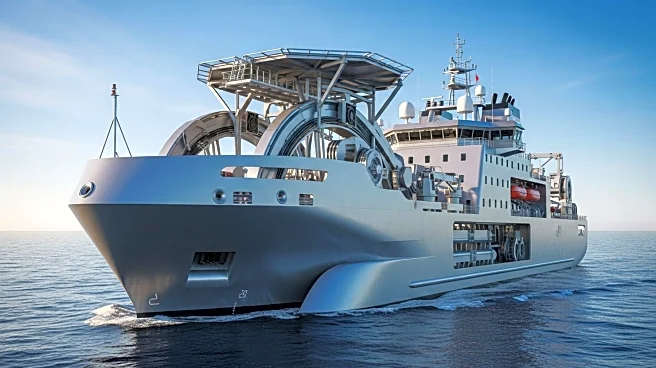What's Happening?
Japan is set to subsidize telecom giant NEC's purchase of ocean-going undersea cable-laying ships, covering up to half of the $300 million cost per vessel. This strategic move addresses national security concerns over reliance on foreign ships for critical internet infrastructure. Japanese officials warn that this dependency poses a vulnerability, potentially slowing emergency repairs and exposing data links to adversaries.
Why It's Important?
Undersea cables are vital for global communications, carrying 99% of international data. Japan's investment in cable-laying ships reflects a broader global trend to secure these lifelines against sabotage and espionage. As geopolitical tensions rise, particularly with China and Russia, ensuring the security of undersea cables is crucial for maintaining national security and economic stability. This move positions Japan as a key player in the global race to protect internet infrastructure.
What's Next?
Japan's first owned cable-laying ship is expected by 2027, enhancing its ability to quickly respond to cable disruptions. This initiative may prompt other nations to invest similarly, leading to increased competition in the undersea cable market. Japan's actions could also influence international policies on cable security and cooperation.
Beyond the Headlines
The investment highlights the strategic importance of undersea cables in modern warfare and diplomacy. It raises ethical questions about the balance between national security and international cooperation in managing global communications infrastructure.









